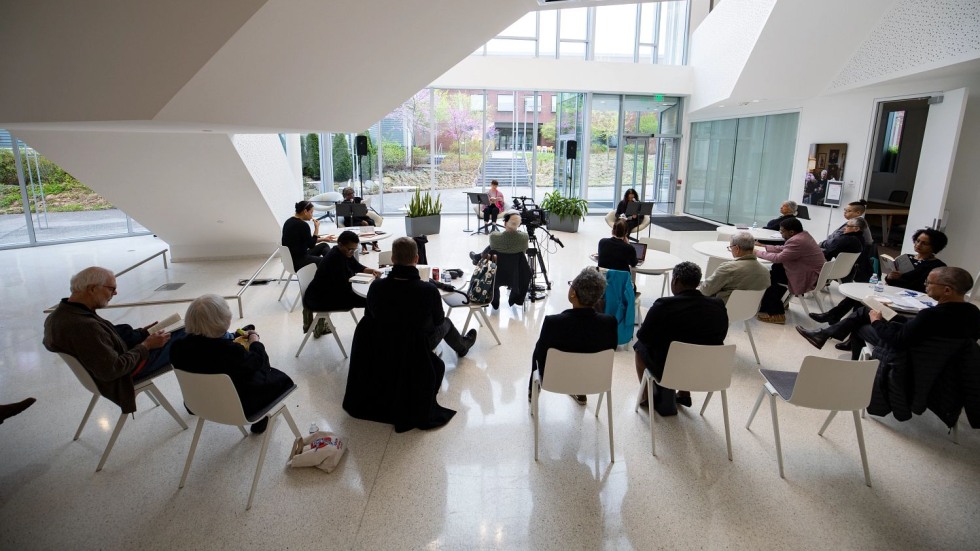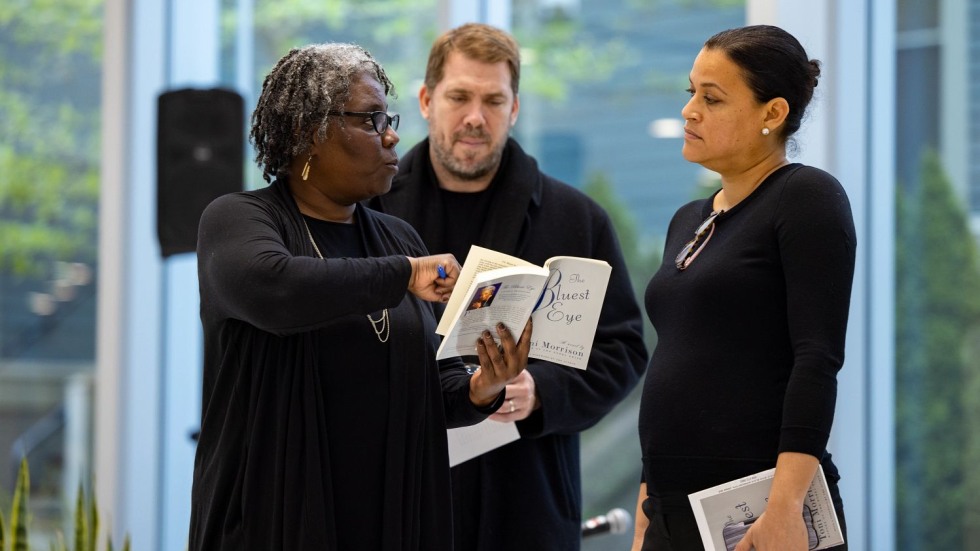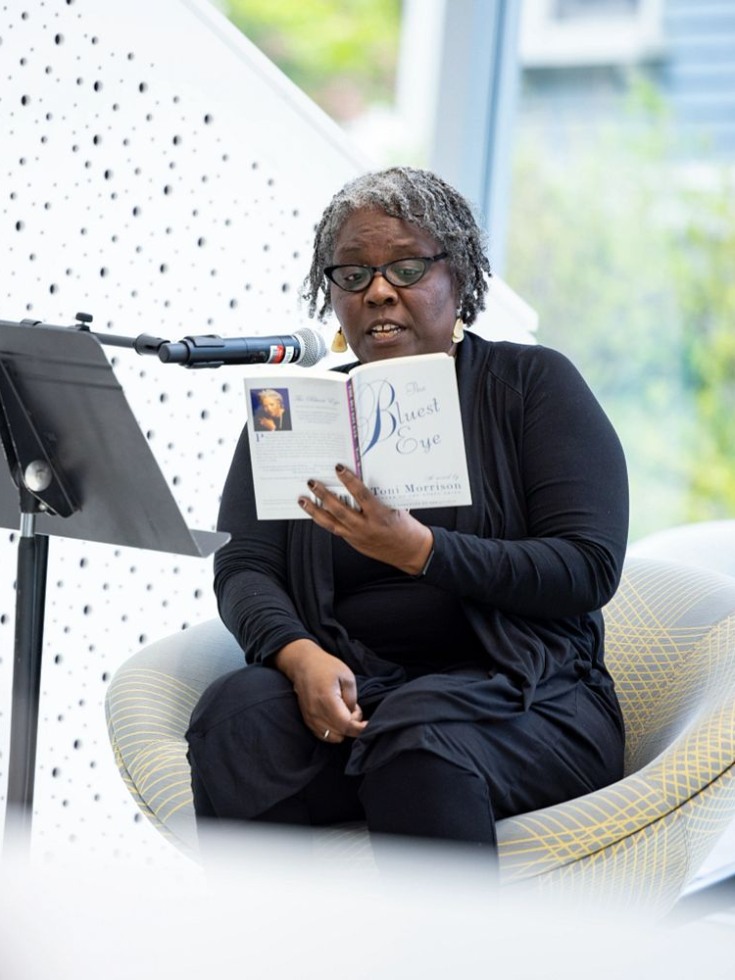PROVIDENCE, R.I. [Brown University] — Scholars and leaders from Brown University took turns reading Toni Morrison’s novel “The Bluest Eye” to an audience of campus and local community members on Tuesday, May 2, as a show of support for teachers resisting book bans in classrooms and libraries across a growing number of U.S. states.
Inside the bright agora of Stephen Robert Hall, Brown faculty members, students, alumni and administrators read passages from the book, which follows a Black girl in Ohio who longs to have lighter skin and blue eyes because she equates whiteness with beauty. “The Bluest Eye” has been banned by multiple school districts across the country, as book bans and censorship have escalated in the 2022-23 school year.
“Here was an ugly little girl asking for beauty… A little black girl who wanted to rise up out of the pit of her blackness and see the world with blue eyes,” reads one of the book’s most well-known passages.
The idea for the reading came to Noliwe Rooks and Matthew Guterl, both professors in Brown’s Department of Africana Studies, in the wee hours one February morning.
“We kept saying, ‘What did this book ever do to people?’” said Rooks, who is chair of the department. “What if we stood in support of the teachers who are being fired for trying to teach these kinds of works in these states — because we can?”


